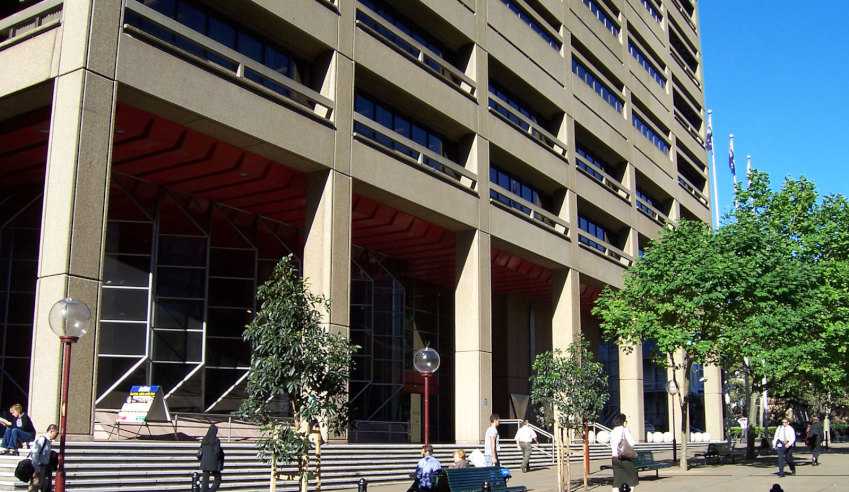Australian solicitor accused of acting without instruction, forging signature
Australian lawyer Martin Zhang has been accused of six pleaded claims, from debt under loan agreements through to transferring money out of trust. While allegations that he and his firm breached solicitor duties failed, claims of misrepresentation concerning five other companies and of his trust breaches succeeded.

The proceedings arose out of business and professional dealings between Martin Zhang and Zhang Peiliang, a Chinese businessman who was referred to in the judgement as “Chairman Zhang” to avoid confusion. The defendants were made up of six companies wholly owned by Mr Zhang, which included an incorporated legal practice, an Australian property investment company and venture corporations.
To continue reading the rest of this article, please log in.
Create free account to get unlimited news articles and more!
A sixth defendant, Guo Jun, was a Chinese lawyer and principal of WH Beijing, the firm Mr Zhang worked at for a time. The claim was determined separately, and Mr Guo has since been dropped out of the proceedings but claims that Mr Zhang forged Mr Guo’s signature on a transfer form was addressed in the judgement.
“The six claims have common features. Each arose out of a payment by one or other of the Australian companies, the recipient of the payment was one of the defendant’s and receipt-based liability was the cause of action, or one of the causes of action, relied upon by the defendant. In each case causes of action were pleaded against Mr Zhang or [his legal practice] for breach of solicitor’s duties,” the judgement read.
The claims in the proceedings concern investments and loans by Chairman Zhang in Australia through four of his companies. The first claim arose out of a $200,000 payment made by one company, GLGC Australia, to Mr Zhang, which was documented as a loan. GLGC sought judgement against Mr Zhang in debt under the terms of the loan agreement and alleged that he breached his duties as a solicitor.
This first transaction took place in December 2014 to fund a personal investment by Mr Zhang. Counsel for Mr Zhang acknowledged on the first day of the hearing that his pleading defences could not succeed. As such, the judge entered judgement in debt against Mr Zhang in the sum of $258,054, representing unpaid principal and interest.
The second arose from a payment by CLGC Investment of $3 million to Mr Zhang’s investment company, WHI Investment Holdings. The purpose of the payment was to acquire the economic benefit of units held in a property investment trust. Without knowledge or approval from CLGC Investment, Mr Zhang caused the trust to sell the units to a third party and WHI and Mr Zhang received a total of $3.4 million.
The third claim concerned a payment of $110,000 made by WHL to a third party out of trust monies held by it for CLGC Holdings. CLGC alleged the payment was made without instructions and was in breach of fiduciary duty on the part of Mr Zhang.
In another instance of trust monies being transferred, the fourth claim involved a payment made by Mr Zhang’s legal practice, W&H Lawyers, out of monies held for CLGC Holdings. Again, CLGC alleged that the $70,000 payment had been made without instruction. It was repaid before the proceedings began but CLGC still sought an account from Mr Zhang to recover any profit he derived from holding the monies.
The fifth concerned a $1.5 million loan made by CLGC Holdings to a third party and the sixth arose out a further payment of $1.5 million from CLGC to Mr Zhang’s RZ Consulting Limited (RZC). This second payment was also characterised as a loan and CLGC sought judgement in debt against RZC under the agreement.
As for the allegations that Mr Zhang forged Mr Guo’s signature on transfer forms – relating to the second claim – the NSW Supreme Court found it “troubling” that under cross-examination, Mr Zhang refused to acknowledge that by writing Mr Guo’s name on the transfer form, “he had effectively forged Mr Guo’s signature”.
“I was concerned that a solicitor holding a current practising certificate could profess such an attitude and raised my concern with counsel for the defendants, who obtained an undertaking from Mr Zhang not to practice until the issue had been satisfactorily resolved. That undertaking was continued and eventually Mr Zhang surrendered his practising certificate,” the Supreme Court judgement noted.
Misrepresentation claims against Mr Zhang and his investment company for the selling of trust units succeeded, as did claims that the legal practice wrongly paid out of trust. Claims that Mr Zhang breached his solicitor duties failed, and indemnity claims relating to a $110,000 payment were defeated by a fraud exclusion.
Further, indemnity claims by W&H Lawyers and Mr Zhang in respect of the first, second, fifth and sixth claims did not arise for decision.
The entire judgement can be read on AustLII: CLGC Pty Limited v Zhang [2021] NSWSC (30 July 2021).






